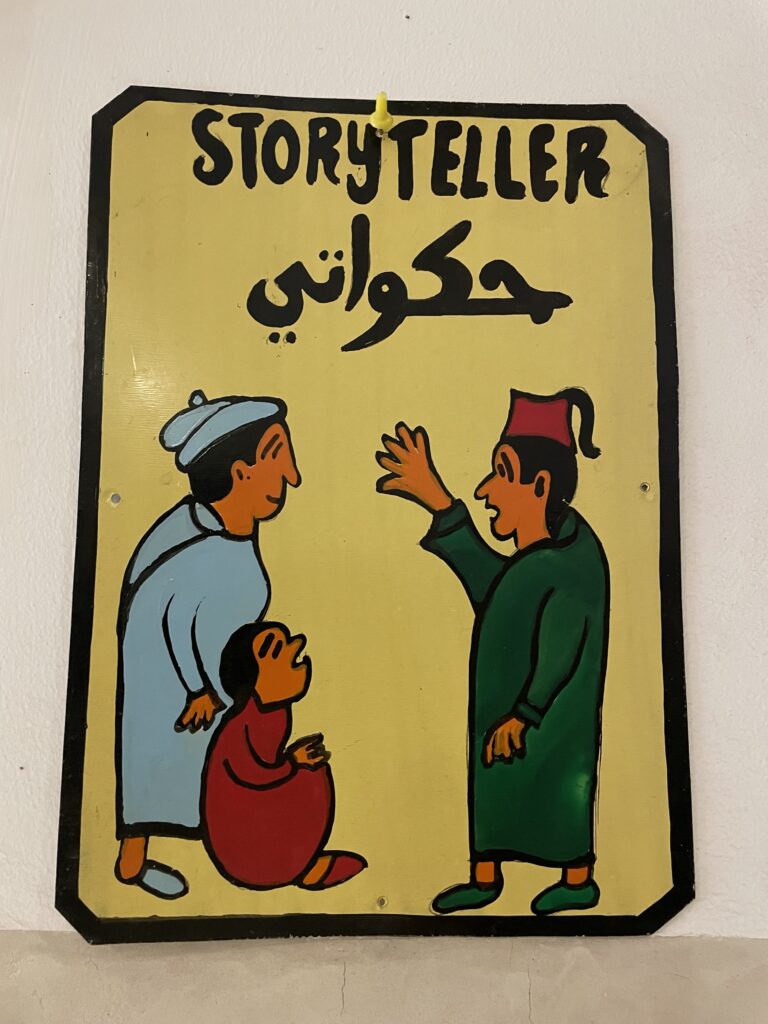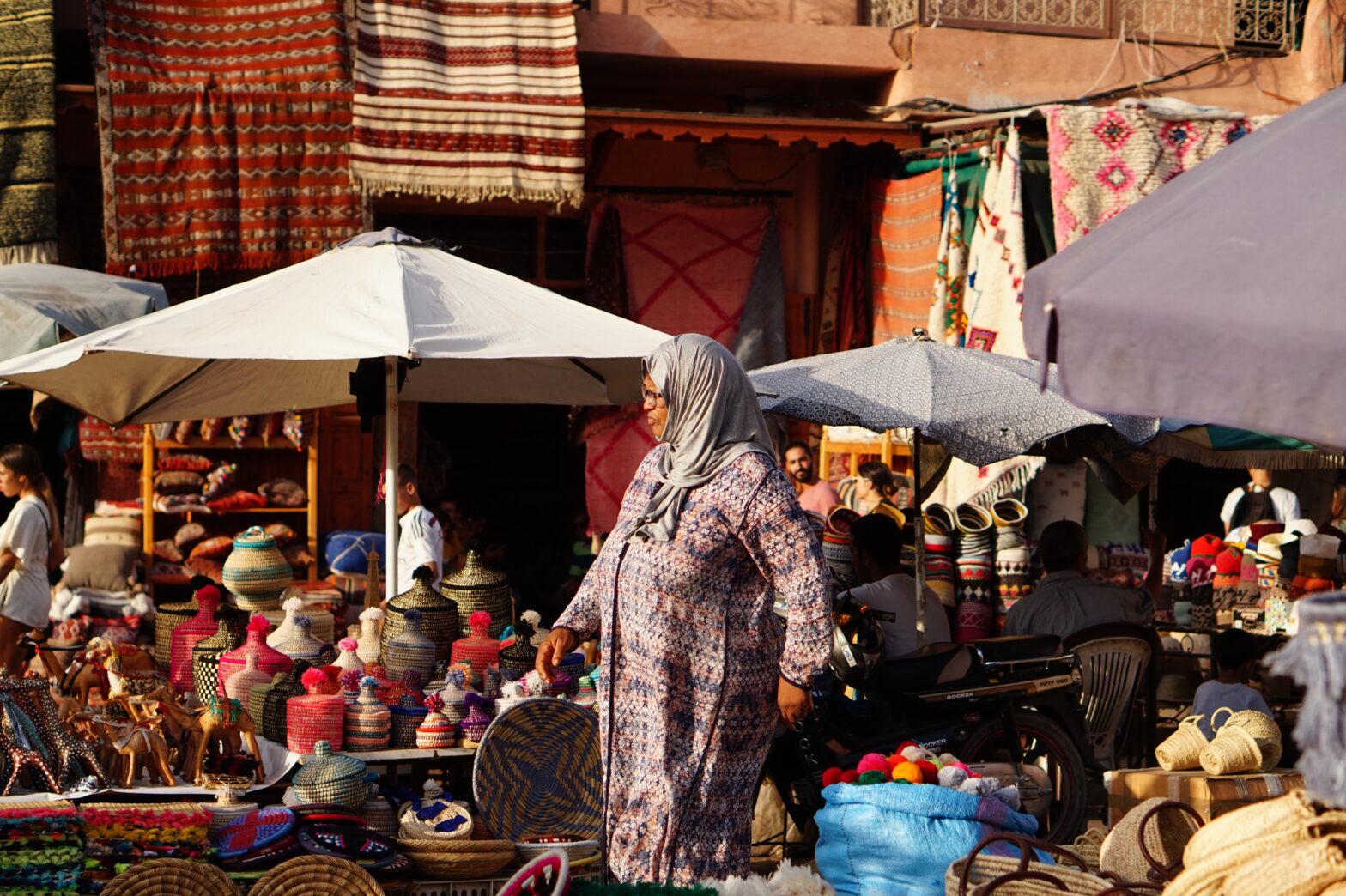The Marrakech International Storytelling Festival highlighted something that embodies the essence of who we are as people: storytelling.
As a child, I learned much about my Trinidadian heritage through the stories of our history and culture that was passed down for generations. Growing up in North Carolina as a first-generation American, I was exposed to what it means to be Black in America through stories about love, triumph, heartache and tenacity.
I’ve always valued storytelling, but I must admit that as a millennial, I lost my appreciation for the art of storytelling and traded it in for the quick dopamine hit that social media gave me. It wasn’t until this year, when I attended the second Marrakech International Storytelling Festival, that my appreciation for storytelling was revived.
Held in Morocco’s vibrant city of Marrakech from Feb. 12 to Feb. 19, the festival’s theme, “Ancestral Voices,” amplified the power of human connection and the healing of storytelling.
Ancestral Voices at the Marrakech International Storytelling Festival

Baden Prince Jnr., an Antigua-born, London-based storyteller, traveled to Marrakech for his second year in a row. He met up with a community of storytellers he interacted with during the pandemic through the virtual World Storytelling Café.
“When I heard there was going to be a festival in person, I was one of the first to book a ticket to come,” Prince Jnr. said. “I came last year, but last year was nothing compared to this year. This year is nearly three times the size, and Marrakech is fully open now. Last year, there were about thirty of us, with most of us being from Britain.”
Marrakech, A Storyteller’s Paradise
The city of Marrakech transformed into a storyteller’s paradise.
On any given day during the festival, you could listen to stories being told in public spaces, museums, riads, cafes, restaurants and more. You could spot storytellers by their colorful garments with each piece of clothing chronicling the person’s lived experiences and culture.
One storyteller that particularly stood out to me was Baba-C. I first spotted Baba-C while he was eating dinner with glowing chopsticks in hand. After walking up to him, I selfishly asked him where I could get similar chopsticks. I’d never seen such dope chopsticks before and needed to purchase a pair. He informed me that his granddaughter got them for him from Amazon.
When he spoke, I heard an American accent. Soon, I learned that Baba-C traveled to the festival from the nation’s capital, Washington, D.C. I was entranced by Baba-C’s powerful energy the longer we talked, and I quickly learned that I wasn’t the only one. His stardom rose among the storytellers and attendees throughout the week. In every room he entered, people would start cheering his name.
As we all gathered for a final dinner and storytelling on the last night of the festival, Baba-C stood up to share his reflections. Before he could utter a word, the crowd of storytellers and attendees began shouting his name with excitement, love and admiration. It was a true testament to how the week had been. People weren’t shy to give others their flowers in the moment.
The crowd was a storyteller’s dream, and the city was a storyteller’s paradise. It was where they could share their experiences unapologetically and receive respect and love in return.

Marrakech, A Crossroad for Africa
“Marrakech is a good crossroad for Africa,” Baba-C told me when I asked him how he arrived at the festival. “It’s a good crossroad for people to come and visit and experience a different culture. It was Marrakech at the right time and the right place.”
Moroccans are very warm and welcoming people. I was treated kindly in every restaurant, cafe and store that I entered. Even in the bustling Medina, where the vendor’s main goal is to sell to tourists like myself, I was approached with love and kindness. It made me slow down, take in what I was experiencing and appreciate connecting with the locals.
I met an owner of a rug shop in the Medina who invited me to his shop for traditional tea and spoke to me about his journey to owning his own Moroccan rug business.
A few locals attended the Marrakech International Storytelling Festival, and they proudly spoke Arabic while telling stories of their culture and country. It showed me that although we speak different languages, storytelling is universally understood through our movements and expressions.
Marrakech International Storytelling Festival Formed Long-lasting Connections
Prince Jnr. and Baba-C developed a relationship during the pandemic because of the virtual World Storytelling Café, and they met in person for the second year in a row.
Seeing two Black men from different cultural backgrounds unite in a foreign city over their mutual love of storytelling was beautiful. They initially connected virtually, seeing each other from screens and separated by continents. For them, meeting in person is like a family reunion. They felt as though they knew each other for years.
Although they were born in different countries — Baba-C as a Black American and Prince Jnr. as a Black Caribbean — and grew up in different cultures, they were cut from the same cloth.
Stories Bring Us Together; My Reflections on the Festival
During a welcome ceremony, Baba-C proudly stood up and addressed the crowd.
“I’ve made some wonderful friends. I’ve been exposed to different type of stories. I’ve made some wonderful connections,” he said. “Stories bring us together. If you really want to learn about a person [and about] people and their culture, sit down at a table full of good food and share a story. That’s the impact that this has had on me.”

I couldn’t agree with him more.
Baba-C, Prince Jnr., and I are from two different generations, but that didn’t stop us from connecting on the principle of storytelling being at the root of everything. I traveled thousands of miles across the Atlantic Ocean without knowing what to expect from a storytelling festival.
While I was on my flight home, I had the time to reflect on my experience. I realized I left with a yearning to help preserve the art of storytelling and the desire to pass down stories to my unborn kids that will teach them about my upbringing as a Trinidadian-American in the south.
Prince Jnr. sums up my feelings on storytelling and the Marrakech International Storytelling Festival best.
“It puts storytelling back on the map, where it belongs,” he said. “It never really went away. It just went underground and quiet for a while. Storytelling is the oldest spoken word art form. It’s a cultural tradition that is shared by communities all over the world. Storytelling is vital. It’s what connects people.”
Learn more about the Marrakech International Storytelling Festival here.





